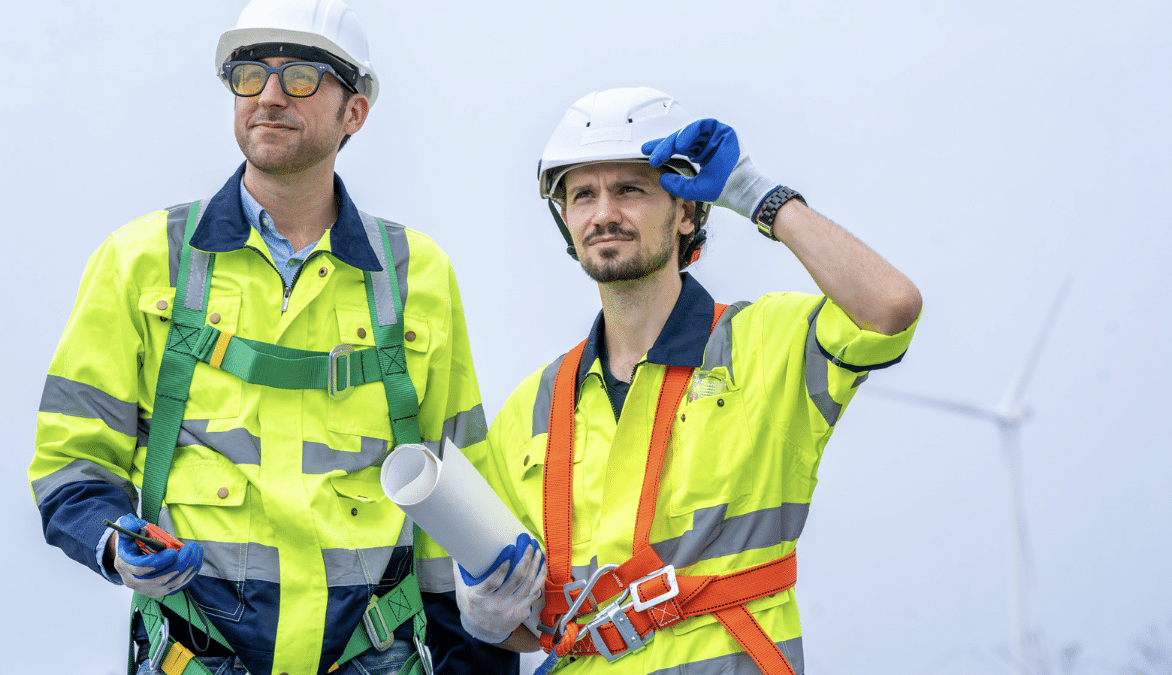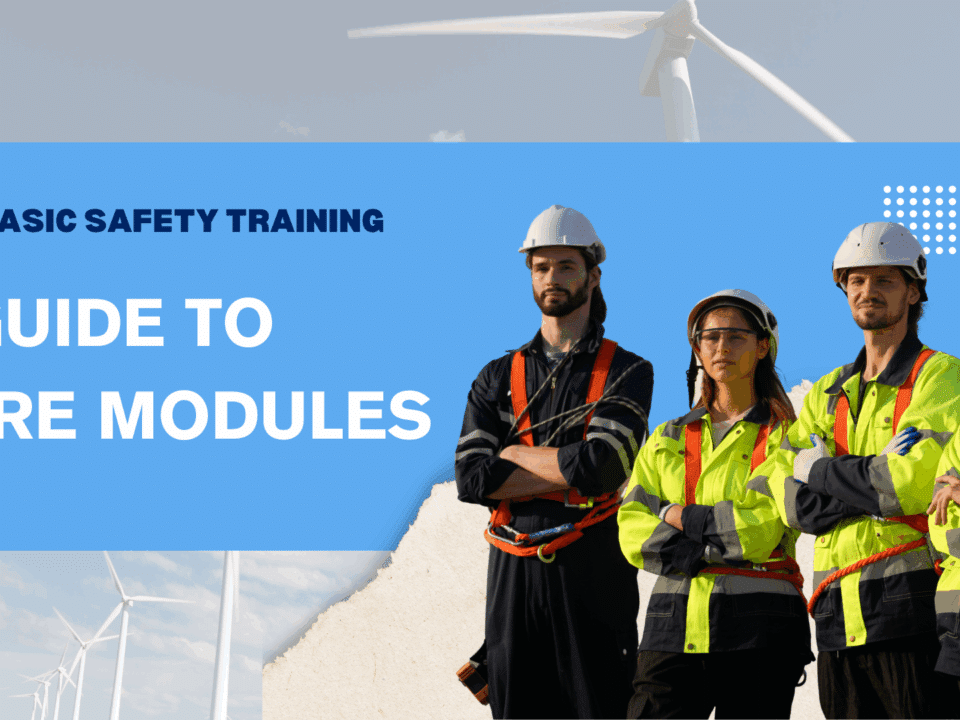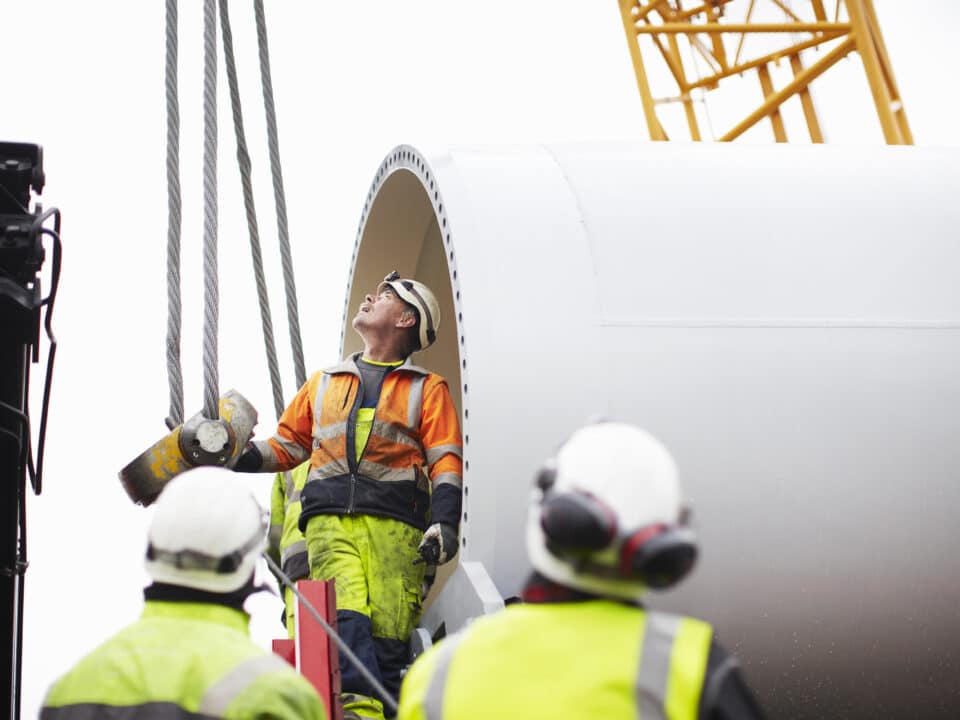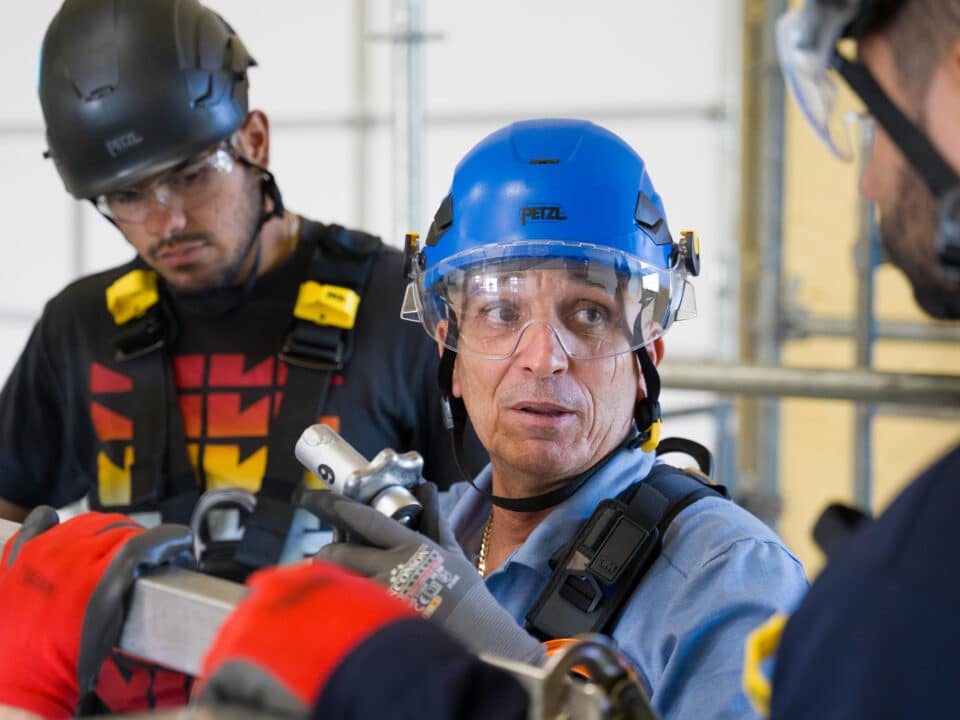
2023 was record year for maturing late-stage offshore wind project activity globally
January 31, 2024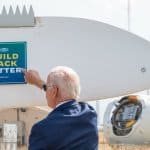
Companies use recycled wind turbine blades in sustainable concrete designs
February 2, 2024Wind Turbine Technician: What Professional Qualifications Do I Need?
Learn how to become a wind turbine technician, with important qualifications, skills, and the need for ongoing learning.
Wind turbine technicians stand at the forefront of the renewable energy movement, ensuring the smooth operation and maintenance of wind turbines that power our communities. These skilled professionals are essential for diagnosing and fixing malfunctioning components, performing tower climbing duties, and working in confined spaces to keep the clean energy flowing. From the foundational high school diploma to specialized job training at technical schools or community colleges, discover what it takes to launch a successful career in wind energy.
Foundations for a Wind Energy Career
High School Education
Start your journey toward becoming a wind turbine technician with a strong foundation in high school. Focus on excelling in subjects like mathematics, physics, and technology, as these provide the critical thinking and problem-solving skills essential for the field. Achieving good grades in these areas not only prepares you for the technical aspects of the job but also enhances your eligibility for advanced training programs.
Post-secondary Education Options
Once you’ve secured your high school diploma, several paths unfold to further your education and skills.
- Certificate Programs: Short-term certificate programs at community colleges or technical schools offer focused training on wind technology, often including hands-on experience, preparing you for entry-level positions.
- Associate Degrees: Pursue an associate degree in wind energy technology or a related field. These two-year programs go deeper into the science and mechanics of wind turbines and typically include more comprehensive training on maintenance and repair.
- Vocational and Technical Schools: Specialized schools provide targeted, practical training, emphasizing the skills needed to service and maintain wind turbines. These institutions often have partnerships with wind energy companies, enhancing job placement opportunities post-graduation.
Each educational path offers unique benefits, catering to different learning styles and career goals. Consider your options carefully to choose the one that aligns best with your aspirations in the wind energy field.
Technical Skills and Knowledge that a Wind Turbine Technician Needs
To excel as a wind turbine technician, a varied skill set is crucial. Explore the key technical abilities required:
Mechanical Skills
Mastering the mechanics of wind turbines is essential. Develop a solid understanding of how these massive machines operate. Focus on learning about gears, hydraulics, and other mechanical systems crucial for maintenance and repair.
Electrical Skills
A strong grasp of electrical systems is vital. Technicians often deal with wiring, circuitry, and power generation components. Enhancing your electrical knowledge ensures you can effectively troubleshoot and resolve issues.
Safety Training and Certifications
Safety is paramount in this high-risk field. Pursue certifications like GWO (Global Wind Organisation) to prove your commitment to safe practices. These programs teach you how to work securely at heights, handle emergencies, and follow industry-standard safety protocols.
Computer and Technological Proficiency
In today’s tech-driven world, proficiency with computers and diagnostic software is crucial. Understanding how to interpret data and use technology for troubleshooting is as important as hands-on skills.
Each skill set is a building block in your career as a wind turbine technician. Prioritize these areas to prepare for a challenging yet rewarding role in wind energy.
Physical and Medical Requirements of a Wind Turbine Technician
Physical and medical requirements are stringent for wind turbine technicians. Candidates must possess robust physical fitness and strength to manage the demanding tasks and work environment.
Height and weight restrictions often apply to ensure safety and efficiency in confined spaces and at heights.
Additionally, obtaining medical certifications, especially for high-altitude work, is essential. These certifications confirm your ability to safely navigate the physical challenges of the job, from climbing towers to performing repairs in various conditions.
Soft Skills and Personal Attributes
Soft skills and personal attributes play a pivotal role for wind turbine technicians. Exceptional problem-solving and critical thinking are crucial for diagnosing and addressing the complex issues that arise with malfunctioning components. Clear communication skills are essential, enabling technicians to effectively collaborate with teams and relay important information.
A keen attention to detail ensures that technicians can identify and rectify even the smallest discrepancies that could lead to larger issues. Additionally, the ability to work well in teams is vital, as most tasks require coordinated efforts in challenging environments.
Professional Certifications and Continuous Learning
Professional certifications and ongoing learning are vital for wind turbine technicians.
Industry-recognized Certifications
Securing industry-recognized certifications, like GWO Basic Safety Training, is crucial. These certifications demonstrate a technician’s proficiency and adherence to global safety standards.
Importance of Ongoing Training and Education
The wind energy field is constantly evolving. Ongoing training and education are vital for technicians to stay updated with the latest technologies and operational best practices.
Advanced Specializations
Pursuing advanced specializations can significantly enhance a technician’s career prospects. Specializing in areas like blade repair or system diagnostics allows technicians to take on more complex and high-paying roles.
Gaining Experience and Building a Resume
Gaining experience and building a strong resume are key steps to becoming a sought-after wind turbine technician.
Internships and Apprenticeships:
Starting with internships or apprenticeships is a smart move. These opportunities provide hands-on experience and a glimpse into the day-to-day duties of wind techs, all while under the guidance of experienced professionals.
Entry-level Positions and On-the-job Training:
Securing an entry-level position offers on-the-job training, allowing you to apply your theoretical knowledge in real-world scenarios. This practical experience is invaluable and often a stepping stone to more advanced roles.
Networking and Professional Organizations:
Engaging with professional organizations and networks within the wind energy community is crucial. These connections can lead to mentorship opportunities, job leads, and continuous learning, keeping you informed about the latest industry trends and advancements.
Each step enhances your expertise and marketability, paving the way for a robust career in wind energy.
Setting Your Sights on Wind Energy as a Wind Turbine Technician
Becoming a wind turbine technician involves a blend of education, technical skills, physical readiness, and soft skills. From obtaining your high school diploma and relevant certifications to honing your mechanical and electrical expertise, each step is crucial. Your journey will likely include hands-on experience through internships or entry-level positions, complemented by continuous learning and networking.
This field not only offers a promising career path but also plays a significant part in our sustainable future. If you’re already on your way with initial certifications and are looking to deepen your expertise, explore our specialized courses. They’re designed to elevate your skills and prepare you for the next level in this dynamic and essential industry. Your commitment to advancing your knowledge and skills can lead to a fulfilling and impactful career.

